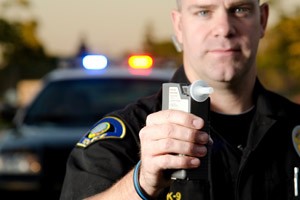
Generally speaking, the law in New Jersey does not permit a defendant in a drunk driving case to plea bargain or enter into a plea arrangement with the police, the prosecutor, the court, or any other person on behalf of the state when it comes to charges for driving under the influence of drugs or alcohol. Therefore, if you are charged with DUI/DWI, and you were hoping to be able to plead guilty in order to have the charges changed or the penalties reduced, you may be out of luck. As with anything, however, that may not be the whole story.
While the New Jersey Supreme Court has long recognized the value of plea bargaining in order to make the administration of justice more effective, specific restrictions on plea bargaining were placed on defendants charged with violating N.J.S.A. 39:4-50, the state’s DWI/DUI law. Since State v. Hessen, the Courts ruled to take away a prosecutor or judge’s power to dismiss or downgrade drunk driving cases. For that reason, it is extremely important to consult an experienced drunk driving attorney if you or someone you know has been charged with driving under the influence of alcohol or drugs. An attorney will be able to explain your situation, help you prepare the best defense in your case, and may be able to have the charges against you dismissed completely. Moreover, there are still some ways that an attorney may be able to work around the plea bargaining restrictions and help improve the circumstances of your case.
An Attorney Can Still Help Have Your Case Dismissed
First, it is important to remember that the ban on plea bargaining in DUI/DWI cases does not mean that a court or prosecutor cannot decide to dismiss the charges against you completely. Municipal prosecutors have a legal and ethical obligation to ensure that justice is done in individual cases. This means that they should not prosecute a drunk driving case where the evidence cannot support the charges. Thus, an application by a municipal prosecutor to dismiss a drunk driving case or seek its downgrade to a different offense based upon evidentiary or proof problems does not constitute a plea arrangement under the rules.
For instance, as we have previously discussed in this blog, an experienced DUI/DWI lawyer may be able to have certain evidence excluded in your case – such as due to a problem in the way breathalyzer or blood alcohol content evidence was collected. This could result in the prosecutor deciding to downgrade or dismiss the charges for evidentiary reasons without plea bargaining.
Other Exceptions to the Plea Bargaining Ban
The rules forbidding plea bargaining cases also only apply to N.J.S.A. 39:4-50 charges. Therefore, an attorney can still help you have related charges merged or amended if you are being charged for driving under the influence of alcohol or drugs at the same time. The rules permit the dismissal of traffic tickets, ordinance violations, and disorderly persons offenses that are companion to a drunk driving ticket. These charges are considered to be companion if they come out of the same set of facts and circumstances that led to the DUI/DWI incident.
While entering in this kind of plea bargain will not eliminate the penalties associated with a conviction for drunk driving, a defendant who pleads guilty to a drunk driving offense in exchange for the dismissal of companion offenses may often avoid many thousands of dollars in fines, mandatory jail terms, additional loss of license, and or significant consequences.
Finally, there are a number of other complicated situations wherein a defendant may be permitted to enter into a plea arrangement with the court. This includes when a defendant is charged with DUI and refusal to submit to a breathalyzer test, or when a defendant is charged with DWI while in a school zone. If you or someone you know is arrested for driving under the influence of drugs or alcohol, it is important that you contact an experienced lawyer immediately, so that you can understand and take advantage of certain laws that can lessen the penalties you must face.
New Jersey Drunk Driving Attorney Edward M. Janzekovich Will Negotiate and Argue on Your Behalf
DWI/DUI laws are often very complicated and the specific rules that affect each defendant can vary depending on the situation. If you or someone you know is charged with drunk driving or driving under the influence in New Jersey, knowing what your rights are can make all the difference. To speak with an experienced New Jersey DWI lawyer about your situation, call us at 732-257-1137 or contact us online today. We serve clients in Ocean County, Monmouth County, Mercer County, Middlesex County, Union County and Somerset County.



 The law in New Jersey is different than 48 other states in that it treats a
The law in New Jersey is different than 48 other states in that it treats a 